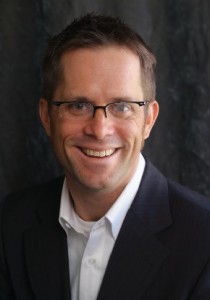Redistricting Partners is a leading demography firm in the nation, aiding states, municipalities, and advocacy groups with their redistricting efforts. Over the past two redistricting cycles, we were hired by over 100 local governments within California, including over 20 counties and over 25 cities – this includes seven of the 13 largest cities in California. We also served as the redistricting consultant for the State of New York Independent Redistricting Commission and for the New York City Districting Commission. In California, we have a master contract with the Foundation for California Community Colleges and the California School Boards Association to assist their members with the redistricting process. Additionally, our firm advised the New Mexico State Ethics Commission to help with the state’s nascent independent redistricting laws. Our work has also extended to outside organizations working to ensure a fair redistricting process, and protect communities. This includes groups like Equality California, who have sought to preserve the power of LGBTQ communities within redistricting, and Common Cause California, fighting to make redistrictings more transparent and inclusive of the public throughout the state.
We have been working for over two decades on redistricting, racially polarized voting analyses, California Voting Rights Act (CVRA) implementation, and mid-decade redistricting work, with GIS and political experience that goes back more than 30 years. Redistricting Partners was formed with a focus on engaging in the statewide redistricting process under the new California Redistricting Commission in 2011. This work quickly moved into local municipal redistricting, advising and implementing transitions from at-large election systems to districted election systems for dozens of community college districts throughout the state.
While we have worked with large states and municipalities, much of our work has also been with community college districts, school boards and special districts, such as hospital districts, water boards and harbor districts.
In the 2020 redistricting cycle we led our first statewide redistricting as the consultants to the New York Independent Redistricting Commission, working with that appointed body in the creation of maps for the State Assembly, Senate and Congress. This included revisions of lines for the Congress which were implemented by the state in preparation for the 2024 election cycle.
Redistricting Partners is headed by Paul Mitchell, a data consultant based in Sacramento  .
.
Mitchell has conducted the redistricting for states, cities, school boards and community college districts, more than 100 in total, including the State of New York Independent Redistricting Commission, the Los Angeles City Council Redistricting Commission, the Long Beach Independent Redistricting Commission, commissions in Oakland, Berkeley and Mesa Az. His firm’s work on racially polarized voting analysis and demographics has aided dozens of agencies as they navigate the California and Federal Voting Rights Acts.
Mitchell also works with nonprofit organizations, such as the Irvine Foundation, American Civil Liberties Union, the Advancement Project, Common Cause, Election Reformers and others in building community engagement and working throughout California and nationally on elections and voting issues, including advising in the State of New Mexico’s inaugural redistricting commission, working with the State Ethics Committee on guidelines for commissioners and evaluating the final maps. In total, Mitchell and his firm has worked in more than 15 states around the country advising on statewide redistricting.
Mitchell has been regularly cited in the media as an expert on elections and redistricting, including as the subject of a CNN Presents special on the decennial redistricting process, being interviewed on the PBS News Hour election coverage in 2020, participating in the 538 Podcast series on redistricting reform, and as a regular analyst on California-based network TV election coverage.
For the past 12 years, Mitchell has also served as Vice President of Political Data where he works with campaigns, nonprofits and universities, with a specialty in polling and survey data. Mitchell earned his associate degree from Orange Coast College, an undergraduate from American University, and a Master’s in Public Policy from USC.
Liz Stitt serves as Chief Administrative Officer and Senior Line Drawer with Redistricting Partners. Liz has a decade of experience in redistricting, first in an academic setting then transitioning in 2020 to working on advocacy before redistricting commissions and leading dozens of local redistrictings. She has been involved in studies of racially polarized analysis, analysis of redistricting ensembles and continues to lead local conversions to districted elections under the California Voting Rights Act.
During the 2020 redistricting cycle, Redistricting Partners reached a size of more than 25 staff people, but now works with a smaller team which includes support from former staff on an as-needed basis.
